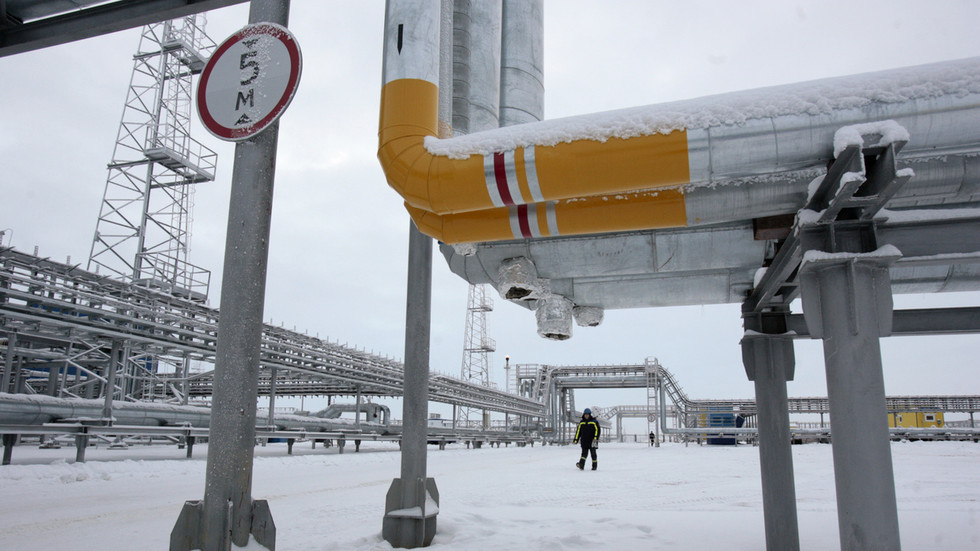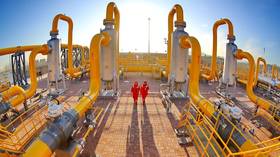
Gazprom has been banned from buying gas from its projects with Western partners at above a price to be set by Kremlin

© Sputnik / Roman Galkin
Russian President Vladimir Putin signed a decree on Thursday that partially relieves state energy major Gazprom from fulfilling its obligations to its foreign partners who hail from countries that have imposed sanctions on Moscow.
According to the decree, published on the official government portal, Gazprom and its subsidiaries are prohibited from paying for gas, or for its production and transport, from joint projects with its EU partners in Russia if the amount of payment is higher than the cost established by the Russian government.
The decree targets Gazprom’s joint ventures with Germany’s Wintershall and Austria’s OMV. In partnership with the two companies, Gazprom is developing two large natural gas deposits in Russia, the Yuzhno-Russkoye and the Urengoyskoye fields.
The regulation has been introduced retroactively, and so is enforeceable from March 1, 2022, and will be effective until October 1, 2023. The government has been charged with setting a price limit within ten days.
Both Germany and Austria are members of the EU, which imposed multiple sanctions against Russia in connection with Ukraine. Head of Wintershall Mario Mehren said in April that Russia had crossed red lines in its partnership with European companies, which means the end of “an era of long and intensive economic cooperation” between Russia and Germany. However, over the summer he said that his company has no plans to quit its joint ventures in the country.

OMV has refused to make new investments in Russian projects and has announced plans to review its participation in the Yuzhno-Russkoye field, where it owns a 25% stake.
Both companies have yet to comment on Putin’s decree.
Kremlin spokesman Dmitry Peskov said the presidential decree is not a response to the Western price cap on Russian seaborne oil that came into force earlier this month.
“No, this is a decision that has nothing to do with these European developments. It is, in fact, a response to the actions of a number of unfriendly countries,” he told reporters on Friday.
For more stories on economy & finance visit RT’s business section




